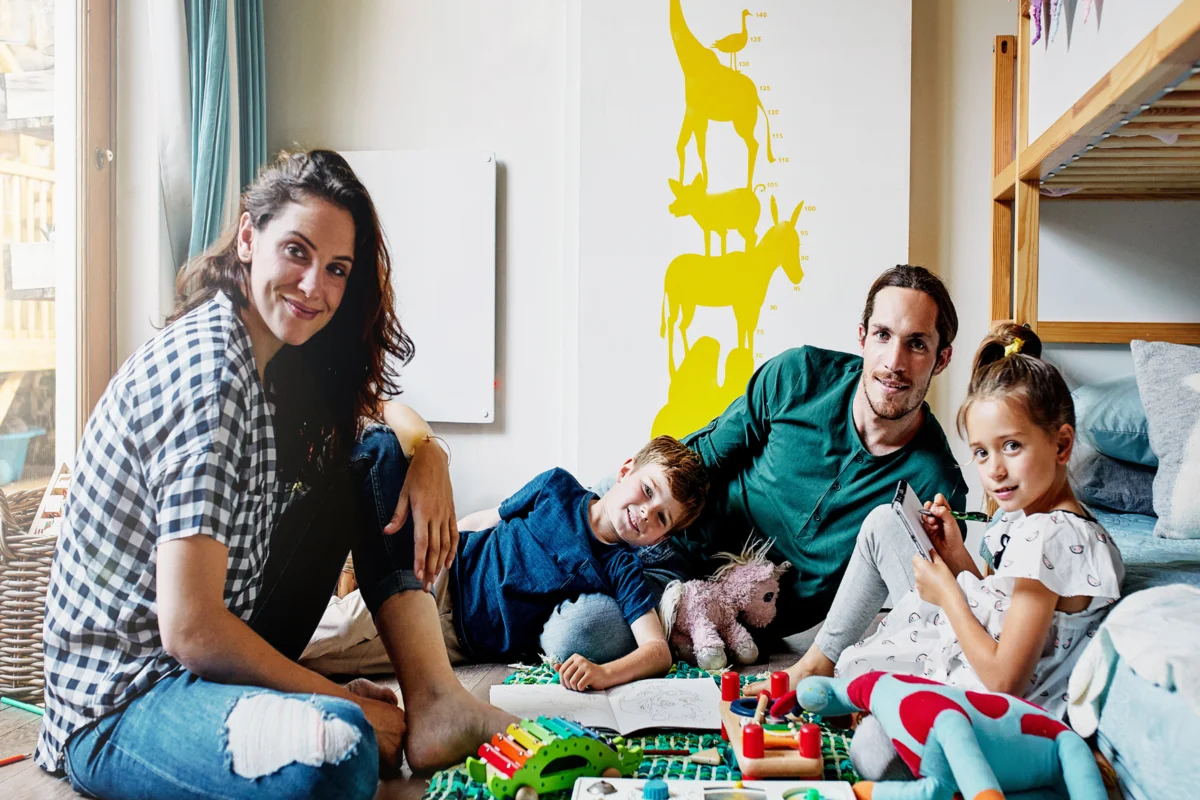Everyone agrees with the fact that early childhood education in children is very important for the development of any society. To this extent, parents, educators, and policymakers need to grasp the real-life consequences of quality learning environments for young people.
Furthermore, this article analyzes how early childhood education works, including its advantages, components, and impact on children’s further learning.
The Foundation of Learning
It is a well-known fact that learning begins early in life, and this sets the pace for primary education. The first three years of a child’s life are a critical time in which their brain builds the connections that are very important for learning and development. High-quality early childhood learning centers builds on this important stage by offering the children purposeful and developmentally appropriate learning stimuli.
Holistic Development
The other common aim evident in early childhood education is the child’s development at an early age. This approach acknowledges that a child’s development is a complex process that considers all aspects, including the physical, intellectual, social, and emotional aspects. Curriculums formulated and learning activities developed by early childhood educators help develop the child in these and other related areas.
Physical Development
Implementation of early childhood education activities may involve activities that enhance fine and gross motor skills. Drawing with pencil and paper, painting, and playing with small objects develop fine motor skills. Gross motor development and physical fitness are best facilitated by activities such as those done outdoors—play, dancing, and sports.
Cognitive Development
Play in the early years develops and enhances cognitive development through structured learning. Components related to problem-solving skills, critical thinking, and creativity are easily observable in children at an early age. Regarding language development, teachers speak to the children, use stories and songs, and imitate during interactions to help the children develop language.
Social and emotional development
They learn basic social skills, including sharing, accepting when to be in the spotlight, and solving problems in a group. Emotional intelligence is fostered as children understand how to understand feelings, manage them, and even understand the other individual’s feeling. she Power of Play
It is very important to note that play is a fundamental component of learning when young children are in the early childhood education program. Fun activities help the child learn more about the world’s functions and provide an avenue to experiment using hypotheses. Early childhood educators know and appreciate the need to engage in structured and free play, which helps learning.
Early childhood education may be categorized in the following forms: Based on the time of engagement and the use of technological items.
Read also: Advantages of Bilingual Education: A Comprehensive Look
Preparing for Future Success
- The student will also be able to produce better grades and perform better in school.
- They said they are associated with higher graduation rates.
- Pursue higher education
- Accompany the formation of effective work practices with the enhancement of social competencies.
- It is worth noting that a broader health metric allows for an overall better health experience.
Early childhood educators are important as they have the responsibility of flattening young minds. These devoted employees need a motor to train them on developments that happen with a child and how the child should be taught. They foster enriching and secure surroundings that allow the child to feel free to learn.
Below are some of the qualities of early childhood educators:
Patience and empathy
- Developing the interest and enjoyment of concepts in designing the activities
- One must be articulate to address both the children and the parents successfully.
- To address the needs of young learners, necessary adjustments must be made to cater to all young learners.
- Proper passion for creating a love for learning
Early Childhood Education Implications for Families
It is important to note that early childhood education does not end at the classroom door. Lack of parental and family involvement remains a critical issue that hinders positive learning at home since they act as role models besides providing consistency in the child’s learning. Many early childhood education programs actively encourage family participation through:
- Regular parent-teacher conferences
- Family sessions and educational group meetings
- Home-based learning activities that need to be learned at home
- It is necessary to note the opportunities of volunteers in the classroom.
Since early childhood education deals with the interface of home and school, young learners are offered a collaborative intervention.
Early Childhood Education and the Future
Over time, ideas about children’s development and available technology change, as does the focus on early childhood education. Some emerging trends include:
- More emphasis is placed on teaching young children science, technology, engineering, arts, and mathematics curricula.
- Incorporation of technology for the age of the students in class
- Outdoor learning, especially where they are exposed to the natural environment.
- Integration of mindfulness and managing of the feelings strategies
These innovations will not only increase the effectiveness of early childhood education as a means of helping children cope with all the opportunities and challenges of the 21st century but will also increase its benefits.
Conclusion
Early childhood education is a process of readiness that goes far beyond preparation for the initial class of a primary learning institution. It is preparation for life as it molds the child’s cognitive, social, and emotional development, which he or she will need in the future. We invest in the children’s future and a more effective society when we support good early childhood education programs.
Looking at the future of early childhood education, one thing is quite evident: It will continue to inspire the young generation of thinkers, leaders, and innovators. With diverse means to promote, appreciate, and demand early childhood education, we are investing greatly in the future.
FAQs
From how long should early childhood education start?
Early childcare education usually develops around eight years from birth to school-going age. However, systematic early childhood care and education start at a rather later age, from age 3 or 4, when the child joins the preschool education program. One must not make the mistake that learning only begins when a child goes to school; in fact, parents are the first teachers and are instrumental in early learning right from the early years of a child’s growth.
How can one differentiate a quality early childhood education program for your child?
The following recommendations should be considered when choosing an early childhood education program.
- Well-qualified and experienced personnel
- Low student-to-teacher ratios
- Another characteristic of an effective learning environment, which is stimulating, is the safety in the environment.
- A curriculum of both the play approach and the regularly scheduled activities.
- Recommendations from other parents or endorsements as seen from the other parents.
- The Ministry of Education to be accredited by well-known early childhood education organizations
Go to the prospective programs, see how students and teachers interact, and be bold and ask about the philosophy of the chosen program and educational approach to early childhood education.











